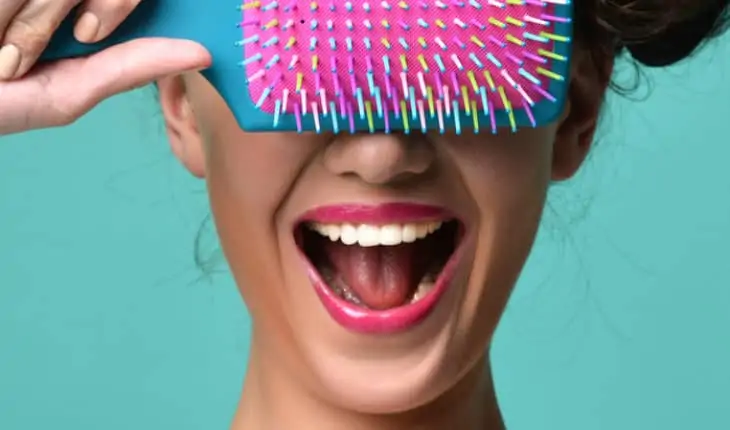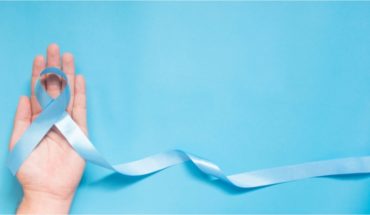Leading Trichologist offers her advice on autumn hair care, Alopecia and looking after your mental health: September marks the start of a new season which means a change in how we should look after our hair to keep it strong and healthy. September is also significant in the hair-care calendar due to Alopecia Awareness Month, an inspiring campaign which helps to support those with the condition as well as raise money and awareness for Alopecia UK.
With World Mental Health Day following shortly after on October 10th, Chair of the Institute of Trichologists, Eva Proudman MIT AIT, shares her advice on how to spot the signs and learn to cope with the often very distressing condition, Alopecia, both in terms of professional care and advice and positive mental health support.
Care for your hair correctly this autumn
Eva says:
As we move from longer summer days to the shorter colder days typical of autumn/winter, our hair and scalp can suffer as a result.
Autumn sees a flare up of scalp conditions such as seborrheic dermatitis and Psoriasis which can be due to changes in humidity and using central heating which takes people from warm indoor temperatures to chilly and often damp environments outside.
If your scalp becomes itchy or flaky during this season, try increasing the frequency of washing to daily or every other day. Use a treatment shampoo with active ingredients such as Piroctone Olamine and Cade Oil. If you do this at the start of a scalp flare up you can often keep it under control.
If your scalp doesn’t settle, book in to see a Trichologist. Often a Trichological treatment can really settle and clear the scalp so that you can manage it at home with the use of shampoos and a regular washing regime. Treatments take around 1 hour and really are worth the time to get instant relief from the itching and irritation.
The autumn months can herald an increase in hair shedding for some people. The long sunny days of summer help to keep the hair in the growing phase for longer but as the seasons change this hair moves into the resting and shedding stages and can give an increase in hair shedding that becomes obvious when washing and brushing your hair. This can be distressing, but it usually settles after a couple of months and is not a hair loss condition, just an adjustment of the normal hair growing and shedding cycle.
Alopecia Awareness Month
Eva says:
As a Trichologist, I see people suffering from various types of Alopecia on a daily basis. There are some types of the condition that we can treat, meaning that the hair will recover, whereas other types are permanent and cannot be treated or the hair recovered. So, it very much becomes our role to reassure and manage the expectations of our patients, whilst also seeking positive outcomes to this often very upsetting condition.
Many people dealing with hair conditions like Alopecia become what we call “hair aware”. They focus on their hair in minute detail and are aware of any small change, which can cause anxiety and can lead to them feeling isolated.
It is really important to be able to understand that hair loss can leave people feeling desperately alone, so a supportive network is essential to help these people to find options to help them. A good starting point is to suggest seeing a Trichologist.
They are always open to seeing anyone who thinks they may have a hair concern and will always answer people honestly, giving lots of information that will allow them to take control of their hair conditions. It is important to acknowledge that as individuals we all make different choices – with regards to Alopecia and other hair loss conditions, some people are happy to embrace and celebrate their hair loss whereas others want to treat and retain their hair or have access to the best cosmetic solutions possible.
So, during Alopecia Awareness Month it is vital that we listen to and respect the opinions of everyone with this condition, and if a family member or friend confides in you about their hair concerns, please take the time to listen and advise them to contact a professional, preferably a Trichologist, because there are lots of treatment options and recovery options to explore.
The charity Alopecia UK also provides information and support for sufferers of all kinds of alopecia. www.alopeciaonline.org.uk has a set of frequently asked questions, with a specific area for children.
World Mental Health Day
Eva says:
There is no doubt that hair loss has a profound effect on self-esteem and mental wellbeing. It can affect both men and women, sometimes with devastating impact, and I see this frequently in my work.
This is because hair loss isn’t just about the visual changes to your appearance – the psychological impact of losing your hair can run very deep into how an individual feels about their hair and themselves, and the fact that it impacts their confidence, personality and perceived attractiveness.
Furthermore, patients often admit that they feel guilty about feeling so upset about hair as it is only a ‘cosmetic’ part of our body. As a Trichologist, I don’t believe that hair loss should only be thought of as a cosmetic condition. In fact, our hair is an intrinsic part of our identity, meaning that when it is suddenly altered or lost, it can have a profound effect on how we view ourselves.
If you are struggling with hair loss but are feeling guilty or ashamed, seek the help of a Trichologist. We can provide you with knowledge and care regarding your condition but also provide mental health advice and support to help you deal with the psychological impact.
World Mental Health Day is about recognising the commonality of mental health problems, speaking out and finding solidarity with others to help you through. I am really proud to be able to support and help every single patient suffering from conditions such as Alopecia, and to be part of the solution to improving their mental health. Hair conditions should not hold you back from living your life to the full, and as a Trichologist I always strive to get patients back on the road to normality.
Eva Proudman MIT, IAT is currently Chair of the Institute of Trichologists (www.trichologists.org.uk / Twitter @TrichologistsUK)
The Institute of Trichologists (IoT) is the leading professional association for trichologists in the world, and the largest trichology training provider in Europe. It is the recognised regulator and standard setter for the Trichology industry in the UK and the trusted point of access for the public regarding information about the Practice of Trichology.
- The da Vinci 5 Robot Is Set To Transform Bariatric Care: - 31st March 2025
- Beyond money: the hidden drivers fuelling child food insecurity - 31st March 2025
- Tobacco and Vapes Bill - 31st March 2025






